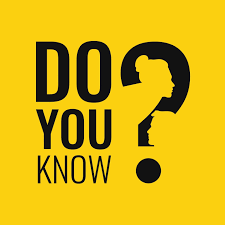In the world of scholarship, knowledge humbles the learned. A well-read would never say he is one. Anyone who, for example, claims to know everything or so much that he thinks of others as unlearned only lives in self-denial. His failure to appreciate the huge vacuum of ignorance within the ‘knowledge’ he claims to have rather makes him, not others, unlearned. Socrates believes that anyone who desires to be a scholar must first recognize his own ignorance. Building upon this premise, he went further to propound the concept of intellectual humility.
Intellectual humility, according to Socrates, emphasizes the need to recognize the limitations of one’s knowledge including being open to acknowledging new advances in the world of scholarship. Within the context of Socrates’ philosophy, “intellectual humility is central to the pursuit of knowledge and wisdom.” He opines that true wisdom comes from recognizing one’s own ignorance and striving to learn more, rather than assuming that one already knows everything. This requires a willingness to admit when one is wrong and to be open to new ideas, even if they challenge one’s existing knowledge. Greater learning is achieved only by those who show readiness to admit what they do not know.
Many of today’s young learners and even some adults foolishly claim all the time to have knowledge of everything, which is not possible. Allah declares in Qur’an 12:76 “… And over every possessor of knowledge is another, the All-Knowing.” There is this story of a bride who did not know how to cook. Her mother-in-law wanted to teach her but the bride was too proud to learn. To everything the mother-in-law said in her attempt to teach the bride how to cook, the latter replied “I know.” When the mother-in-law said, “for this quantity of rice, you need this much water”; the bride said, “I know.” When the mother-in-law said, “You need this amount of salt”; the bride said, “I know.”
The mother-in-law continued, “When the rice is cooked to such and such level, you need to drain it”; the bride got angry and said, “I know everything you are talking about, but you keep explaining.” The bride’s mother-in-law knew of the pride in the young lady. In order to break this pride, she said to the bride, “After draining the rice, you must steam it with a sundried brick over the pot.” The bride replied, “I told you I know that too.” When the bride was ready to cook rice, she did everything her mother-in-law had told her, which she pretended or claimed to know. When the bride came to steam the rice, she put a sundried brick over the pot. But when she came a few minutes later, she found the brick had dissolved in the rice; turning the entire pot of rice in to a sludge of mud.
- ‘It is sad that despite lives lost during Biafra, Nigeria is still divided’
- Why agitations for secession continue 54 years after civil war
This is how people, who because of pride or exaggerated opinion of themselves, lack the patience and discipline to learn; and as a result, continue to miss gracious learning opportunities. A pedagogical principle though frequently ignored but which permeates most learning theories is the reality that individuals who acknowledge their ignorance about what they actually do not know often learn better and faster than others who pretend to know what they really do not have even the faintest idea about.
People do not just become scholars, learned or intellectuals, without being good learners from the onset. Well-disposed learners and indeed men of knowledge do accept that the knowledge they already possess about certain things (though limited) is insignificant when compared to the infinite extent of what they do not know. Only a good learner realizes the gap between what he knows and that which he does not; making him wiser. As his knowledge increases, so would the scope of his ignorance expand proportionately. This is why anyone in pursuit of knowledge for scholarship should humbly continue to say “I know very little” each time the question “How much do you know” is posed at him.
The more learning experiences a person acquires, the more complexities he discovers; and the more complexities he comes across, the greater number of questions he encounters; and the greater the number of question marks there are for him to resolve, the more he realizes his own ignorance. While a person’s knowledge may be limited, his ignorance is comparatively ever infinite.
A good learner has an increasing thirst for knowledge. Allah commands in Qur’an 21:7 “…Therefore, ask (from) those who possess the Message, if ye do not know”. A person committed to learning is never exhausted in his efforts to acquire knowledge. He is equally a person imbued with a high sense of humility. Genuine learners and learned are humbled by knowledge and the search for it. A person who cannot subdue pride, envy and anger; or cannot listen as much as he speaks; or cannot tolerate opinions contrary to his; or cannot confess his weaknesses; is classically ignorant. While we pray to Allah to guide us to the path of men of knowledge and wisdom; we equally seek His protection against treading the course of ignorance and the arrogance, amin.

 Join Daily Trust WhatsApp Community For Quick Access To News and Happenings Around You.
Join Daily Trust WhatsApp Community For Quick Access To News and Happenings Around You.



